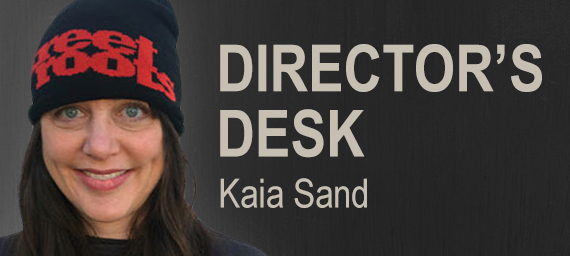On Monday, Trump free-associated about homelessness with Fox News’ right-wing provocateur Tucker Carlson, associating “filth” with descriptions of homeless people and declaring his desire to “get that whole thing cleaned up” because the visibility of homelessness is “inappropriate.”
“When we have leaders of the world coming in to see the president of the United States and they’re riding down a highway, they can’t be looking at that,” he said. “I really believe that it hurts our country. “They can’t be looking at scenes like you see in Los Angeles and San Francisco. … We’re looking at it very seriously. We may intercede.”
While Trump’s comments about “interceding” are ominous, his sentiments are uncomfortably mainstream, embedded in “livability” policies and voiced on Next Door threads and in letters to the editor. The Oregon Department of Transportation “intercedes” by rolling boulders under overpasses to block unhoused people from taking shelter in the rain.
FURTHER READING: You are not welcome here: Anti-homeless architecture crops up nationwide
Trump’s comment that world leaders “can’t see that” brings out, too, a not uncommon refrain about the exposure of poverty as an eyesore.
But yes, they can – and should – see the truth. The truth is that people are really, really poor in wealthy U.S. cities. And developers like Donald Trump that drive up the price of real estate are part of that truth.
But while many of his comments were uncomfortably close to mainstream notions, his misunderstanding of the federal government’s role in housing and services is important to spotlight.
The federal government, he said, is “not very equipped as a government to be doing that kind of work” of solving homelessness, and “that’s not really the kind of work that the government probably should be doing. We’ve never had this in our lives before in our country. And it’s not only those few cities; it’s a couple of other ones.”
No. It’s just the opposite.
Federal disinvestment in housing in the early 1980s pushed us into modern-day homelessness. The Western Regional Advocacy Project breaks down this disinvestment in its 2010 Without Housing report, describing how in 1983, funding for the Department of Housing and Urban Development was cut to a level 77 percent less than 1978 levels. The report concludes that “ending mass homelessness in the United States will require a serious recommitment by the federal government to create, subsidize and maintain truly affordable housing.”
Despite all the work that local and state governments do to address homelessness, when the federal government support is lacking, the chasm is overwhelming.
Today, one of the federal government’s best-known assistance programs is Section 8 vouchers for low- and no-income renters, including the disabled and elderly.
But only 1 out of every 4 people who qualify for a Section 8 voucher receives one. And rent prices have risen to levels that the dollars don’t stretch far enough to cover the need. And Mr. President, that’s not just a few urban centers with extreme situations. This is the entire country.
FURTHER READING: A broken voucher system in Ontario, one of Oregon's poorest cities
Interceding on their behalf is clearly not what Trump means. He continues to push budgets that would slash HUD’s programs, proposing higher rents and reduced rental assistance. These cuts hit extremely low-income families the hardest and cripple local communities’ efforts to end homelessness among their own neighbors.
There’s more. The Trump administration has carried into the housing realm its cruel and relentless preoccupation with inflicting hardship on the lives of people who have immigrated to the United States from Mexico and Central America. This will result in more homelessness.
In May, his administration began pushing a new rule. Families for whom even one person is undocumented will lose their federal funding for housing. An estimated 25,000 “mixed status” families – households composed of even one member who doesn’t have documents – would be evicted from public housing and stripped of housing vouchers.
The HUD impact statement estimates that more than 100,000 people would be affected – 70% of them citizens or legal residents, 55,000 of them children. And the agency estimates spending $3 million to $4 million dollars evicting people, many into homelessness.
Is that what Trump means by interceding? Creating more homelessness?
Meyer Memorial Trust President and CEO Michelle DePass issued a statement declaring that it’s time for more people to say “enough.”
“This is likely the first time Meyer Memorial Trust has commented on a pending federal housing rule,” she wrote. “We are moved to do so by HUD’s willingness to use families and children as props in a political drama that will destabilize communities across the United States and directly increase homelessness and trauma among Oregon’s 4.2 million residents.”
I applaud her leadership.
Say “enough,” and push back against Trump’s racist vitriol. HUD is accepting public comment through July 9. Register your dissent to this federal rule that will drive more people into homelessness.
Kaia Sand is the executive director of Street Roots. You can reach her at kaia@streetroots.org. Follow her on Twitter @mkaiasand.


